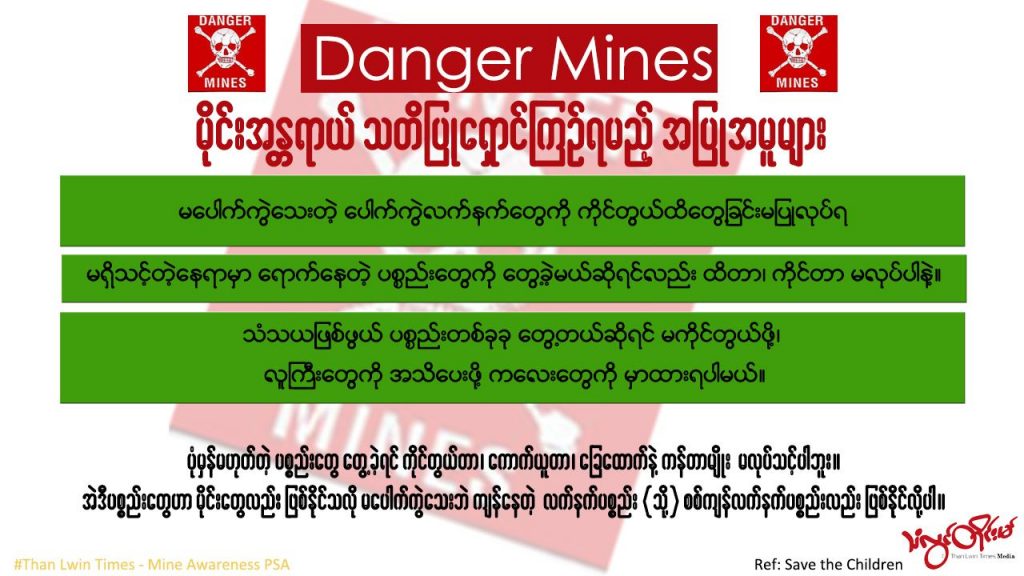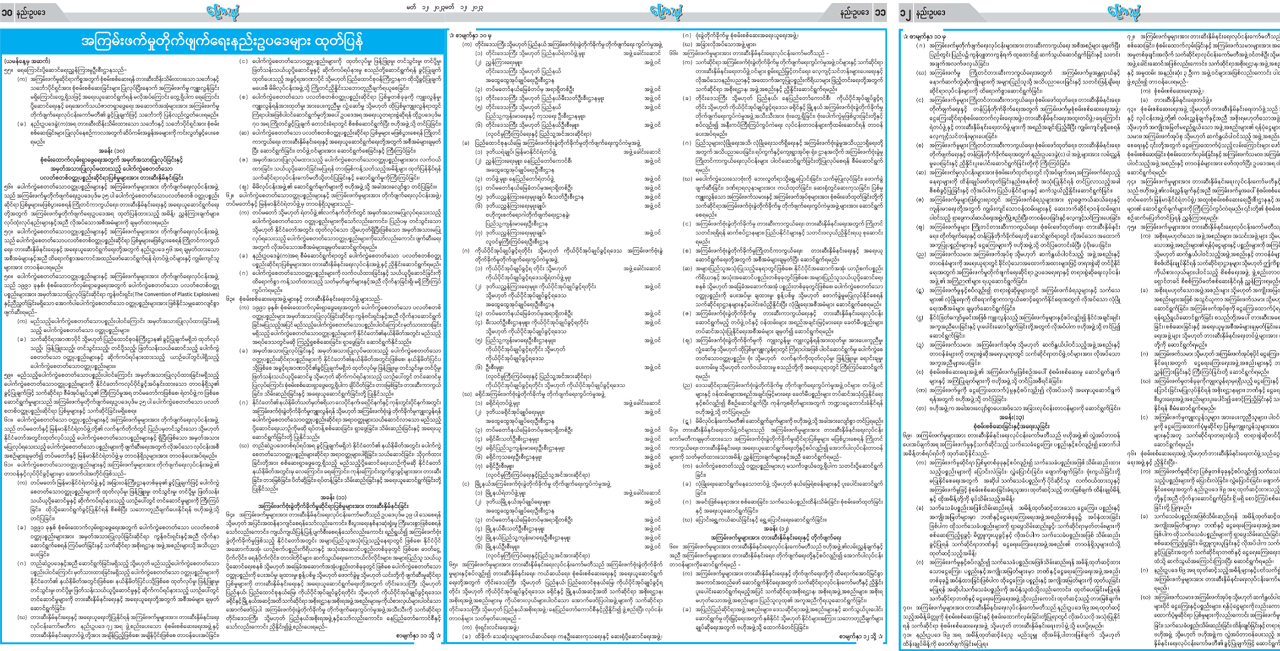Nay Pyi Taw, March (17)
The military council enacted the Anti-Terrorism Act to intercept, cut, and restrict the communications of those who oppose it.
On March 10, the Minister of Home Affairs, Lt. Gen. Soe Htut, signed the supplementary regulations of the Anti-Terrorism Law, which was drafted in 2014 under the U Thein Sein administration.
Chapter 14 of the Anti-Terrorism Act, which consists of more than 120 chapters and 20 sections, provides for the recording, interception, restriction, and location verification of electronic information to prevent terrorism and investigate the communication activities of terrorists in real time.
According to that law, the Counter-Terrorism Committee will inform the relevant licensed telecommunications business about the restrictions on electronic communications. The law also states that telecommunications operators cannot refuse instructions from the Counter-Terrorism Committee.

The military council has been issuing various directives since the coup, and issuing such laws is just a show for local and international communities, criticized U Gyi Myint, a veteran lawyer.
Military councils may submit electronic communications information they obtain as evidence in investigations related to terrorism or the financing of terrorism.
A person participating in the ground strike movement in Sagaing, a stronghold of the revolution against the military dictatorship, told the Than Lwin Times that he is being as careful as possible with his phone communications.
On the other hand, the military council is checking the personal information of registered SIM card users with the National Database of the Ministry of Immigration and Population.
The military council said it will send SMS to registered SIM card users who have not filled in the information correctly within 30 days to fill in the correct information.
In addition, the Communications Department of the military council announced on March 14 that SIM cards without correct personal information and registration will be closed within 90 days.
Political analysts have criticized the military council’s Anti-Terrorism Law as imposing cuts to public support for the National Unity Government (NUG), the Committee Representing Pyidaungsu Hluttaw (CRPH), and the People’s Defense Forces (PDFs) and continuing repression against the people.
News-Than Lwin Times


